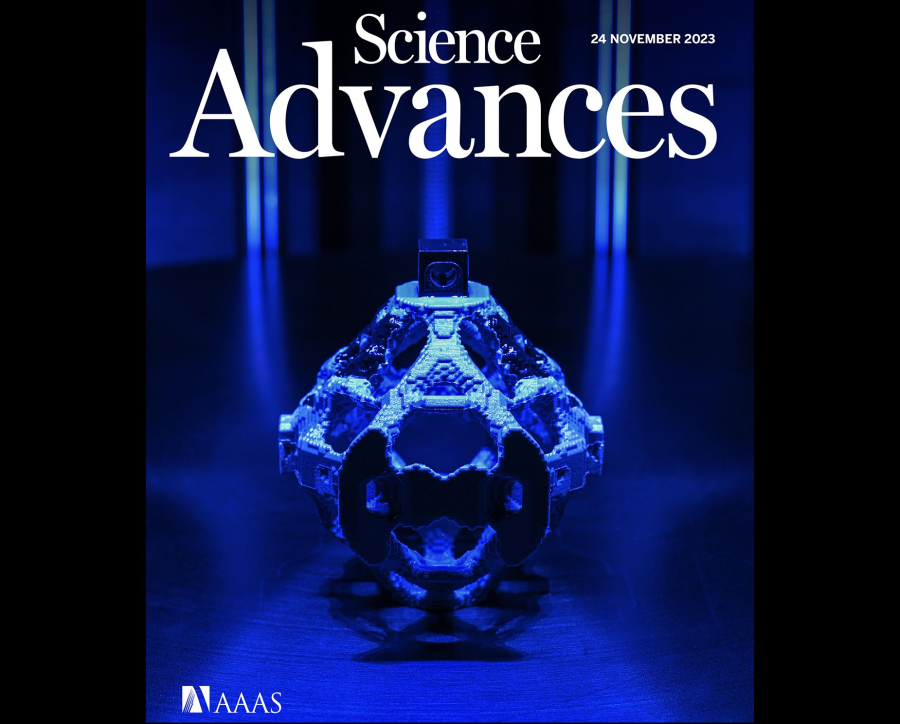New research by a professor in the Mechanical Engineering Department of the Cullen College of Engineering could lead to the creation of material architecture that changes its behavior based on different temperature situations.
Tian “Tim” Chen, Kamel Salama Endowed Assistant Professor of Mechanical Engineering, is the lead author for “Algorithmic encoding of adaptive responses in temperature-sensing multimaterial architectures.” The article was chosen for a November cover in Science Advances.
Chen noted that when designing systems, engineers have to keep a set of functionalities in mind that account for the material's properties. However, their research goal was to design systems that react intelligently, using internal microstructure with hardware and software integration.
“As an example, we can design a rubber ball that is initially hard when squished but gets progressively softer when the environment is cold, and does the opposite when the temperature warms up,” he said. “As another demonstration, we show architected materials that contracts significantly when squished when cold but expands significantly when warm. I think this work will vastly broaden the design freedom whiled reducing the complexity in engineering systems.”
The research is a collaboration between Chen and X. Shelly Zhang, David C. Crawford Assistant Professor in the Department of Civil and Environmental Engineering at the University of Illinois at Urbana-Champaign. Additional authors include Yue Wang and Weichen Li, doctoral students of Chen and Zhang respectively.
“The idea was conceived between me and Dr. Zhang,” Chen said. “We are in the same research field, and we have known each other's work for a while. We met in 2022 at multiple conferences – the first encounter was actually in Houston – where this research concept was conceived and progressively built on. It was a natural fit since her group does computation and we do experiments.”
For Chen, this builds on earlier research published in Nature that focused on magnetically programmable materials, such as bits on a hard drive.
“This work constitutes one critical step towards achieving programmable matter, which are artificial materials whose characteristics, mechanical or otherwise, are programmable in the way that computer programs are programmable,” he said.
Chen joined the faculty in September 2021 and runs the Architected Intelligent Matter (A.I.M.) lab, which has its own website. Earlier this year, a video with him and Steve Mould, an author and educational presenter, reached 1.5 million views in less than a week. That video now has close to 5 million views.
